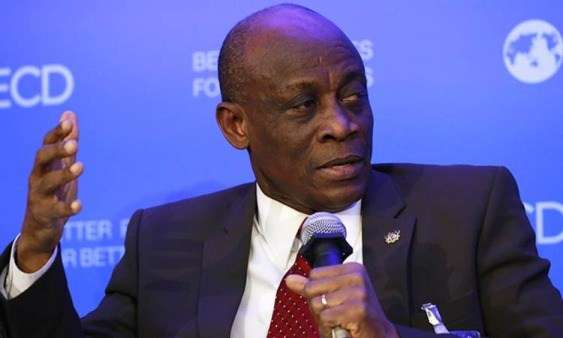Former Finance Minister, Seth Terkper, has expressed worry about the undue burden being placed on the Bank of Ghana which now supports about two-thirds of the country’s budget, a situation which was not common in the past.
According to him, Bank of Ghana did zero financing of the budget between 2016 and 2020 but this rose to GHS10 billion for the whole year and all of a sudden, it rose to GHS22 billion. He noted that he wouldn’t be surprised if Central Bank’s financing rose to GHS30 billion by the end of the year because the country is still borrowing.
Mr. Terkper noted that the failure of government to increase its revenues at the rate at which its expenditure has been ballooning has created the deficit that has further been exacerbated by the ongoing Ukraine war and interest rate hikes the world over.
He urged government to find a sustainable solution to Ghana’s fiscal structure problems as a way of avoiding similar economic situation in which the country currently finds itself.
Speaking on PM Express Business Edition on Thursday night, Terkper noted that it will be difficult for government to meet its revised revenue targets this year.
“We said we’ll collect GHS100 billion, we’ve reduced it to GHS96 billion. Some of us said we may be lucky to get between GHS80 and GHS85 billion… The gap between the GHS100 billion and a GHS137 billion expenditure is what we want to finance and we’re unable to finance. Before the middle of the year, Bank of Ghana had to come in. Bank of Ghana is financing GHS22 billion of that GHS137 billion because you cannot go and borrow any longer, this is a problem.
“Let’s put aside whether they [Bank of Ghana] were printing money or using their own resources and weakening their balance sheet. The truth is that; the Bank of Ghana has started financing two-thirds of the deficit. And if you reckon with government documents coming out now that the arrears is understated, it means that Bank of Ghana is financing about half of GHS40 billion.”
Seth Terkper
The Former Finance minister noted that while the chief fiscal problem has to do with revenue and expenditure, another is the failure of government to pay back its loans. He pointed out that government, over the years, has exhausted buffer funds instead of building them up for situations like these.
Mr. Terkper said once donor countries are currently hiking their interest rates as a result of the Russia-Ukraine war, borrowing to fill the gap the country is now facing will be very expensive thus the need for a structural change.
Need to create more space for investment
Another panelist on the program, Kenneth Kwamina Thompson, CEO of Dalex Finance, urged government to create more space for investment even as the country reels from an economic downturn.
According to him, the impact of the current economic crisis has been devastating on the private sector which, if not solved, would further slowdown the country’s economic recovery process and subsequently exacerbate the country’s social issues.
He underscored that since interest rates are expected to remain high for the foreseeable future, funding for private sector businesses is going to be tough leading to job losses and stunted growths of businesses in the country.
READ ALSO: Aisha Huang’s Charges Are Deliberately Scanty, Narrow And Superficial- Minority





















